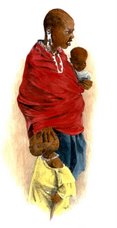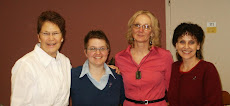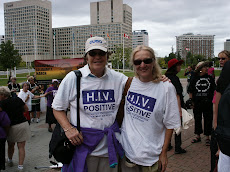WATERDOWN
Thursday, September 20th, in the Memorial Hall, 317 Dundas Street East ( Hwy 5) Waterdown at 7 p.m.
A benefit performance of The Hobbit for Grandmothers of Steel, Hamilton in support of the Grandmothers to Grandmothers Campaign of the Stephen Lewis Foundation
Village Theatre (Waterdown) Inc presents The Hobbit from the book by J.R.R. Tolkien, adapted by Kim Selody, directed by Nea Reid, as a benefit on Thursday September 20th. (Regular performances run from September 21st to October 6th.)
www.villagetheatrewaterdown.ca
Profits to benefit the Stephen Lewis Foundation Grandmothers to Grandmothers Campaign http://www.stephenlewisfoundation.org/grandmothers.htm
Other Grandmothers to Grandmothers groups in Canada: http://www.stephenlewisfoundation.org/grandmothers/groups.htm
Cost for the Benefit is $25 per ticket
Tickets are available through the box office (905) 690-7889
Contact: Lisbie Rae, Producer, The Hobbit
lisbie@xplornet.com 905 659 7213
Anne Philpot, Chairperson Grandmothers of Steel Hamilton, akphilpot@mountaincable.net or (905) 383-8785
Theresa Randles, Secretary Grandmothers of Steel, Hamilton,
http://www.art-in-canada.com/theresarandles
Monday, August 20, 2007
Tuesday, August 14, 2007
Hope in the city

MEDIA RELEASE
You are invited to participate in an exciting and important local initiative that focuses on uniting businesses, residents and the community through education, dialogue, social and economic events.
Hope in the Cities – Hamilton began in 1990 and is a program of Initiatives of Change ( Canada), a national and international network who recognizes that efforts to address critical issues affecting the economic and social life of individuals and communities are often undermined by unresolved racial and ethnic issues. Funding for this project has been sought from the City of Hamilton and local business people.
The main event scheduled for this summer, is a community unity breakfast, cultural mosaic event with entertainers and speakers culminating with a “Walk through History” which takes place at identified sites where individual storytellers bring to life the scars of Slavery in a natural environment and engage and challenge all communities in Metropolitan Hamilton to join in creating a spirit of Hope and Unity in Healing the Heart of Hamilton. The event will be held at LIUNA Station Banquet Centre, 360 James Street North, Hamilton on Sunday August 26th 2007 beginning at 8:00a.m.
You can support this initiative and benefit from the resulting positive development by providing one of a selection of sponsorships. Sponsorships at any level will result in your business being recognized in print media and television, in the complimentary program and other announcements. Please see the attached sponsorship form for details.
Representatives from Hope in the Cities – Hamilton, wish to meet with you to discuss this exciting program, to invite your sponsorship and your participation in the events. Hope in the Cities provides tools to assist in breaking down barriers of hate; build and empower teams to reach beyond themselves to the wider community; and challenges individuals and groups to look deep at their own attitudes and behaviours as they explore the methodology of Hope in the Cities. Please join us and empower yourself, your business and staff toward building a more effective, sustainable and healthy community.
Further information contact Doreen Johnson at Email: immi@cogeco.ca
You are invited to participate in an exciting and important local initiative that focuses on uniting businesses, residents and the community through education, dialogue, social and economic events.
Hope in the Cities – Hamilton began in 1990 and is a program of Initiatives of Change ( Canada), a national and international network who recognizes that efforts to address critical issues affecting the economic and social life of individuals and communities are often undermined by unresolved racial and ethnic issues. Funding for this project has been sought from the City of Hamilton and local business people.
The main event scheduled for this summer, is a community unity breakfast, cultural mosaic event with entertainers and speakers culminating with a “Walk through History” which takes place at identified sites where individual storytellers bring to life the scars of Slavery in a natural environment and engage and challenge all communities in Metropolitan Hamilton to join in creating a spirit of Hope and Unity in Healing the Heart of Hamilton. The event will be held at LIUNA Station Banquet Centre, 360 James Street North, Hamilton on Sunday August 26th 2007 beginning at 8:00a.m.
You can support this initiative and benefit from the resulting positive development by providing one of a selection of sponsorships. Sponsorships at any level will result in your business being recognized in print media and television, in the complimentary program and other announcements. Please see the attached sponsorship form for details.
Representatives from Hope in the Cities – Hamilton, wish to meet with you to discuss this exciting program, to invite your sponsorship and your participation in the events. Hope in the Cities provides tools to assist in breaking down barriers of hate; build and empower teams to reach beyond themselves to the wider community; and challenges individuals and groups to look deep at their own attitudes and behaviours as they explore the methodology of Hope in the Cities. Please join us and empower yourself, your business and staff toward building a more effective, sustainable and healthy community.
Further information contact Doreen Johnson at Email: immi@cogeco.ca
Tickets also available from Theresa!
Benefit performance- please come!
Letter from Zimbabwe

Dear Family and Friends,
At the beginning of August the Interception of Communications Act was signedinto law and the government of Zimbabwe can now legally intercept emails andfaxes, listen to telephone conversations and open and read letters. At a timewhen there is no fuel to buy at petrol stations and almost no public transporton the roads, just getting to the local Post Office has become a major outingfor most people. Sending a simple fax has become a joke and it often takesthirty or forty attempts to connect to a telephone number and even then successis not guaranteed. Sending SMS/text messages is a mission of major proportionsand requires the patience of a Saint as scores of times in a row the words flickup:" Message sending failed" until eventually you give up in disgust. Then weget to the aspects of communications that require electricity and the joke ofthe Interception Act gets even funnier. This week the electricity cuts in myhome town have been so bad that they've lasted for 18 hours a day, starting at 4am m in the morning and going on until 10 pm at night. And so, all thingsconsidered,you have to wonder just exactly what it is our government thinks weare saying to each other and how we are finding the time or means to say it.Most people I've met this week are walking around like zombies. We are utterlyexhausted as the simplest of daily chores require great ingenuity, considerableamounts of time and vast amounts of energy. People everywhere relate the absurd,upside down routine that has become life here. Cooking outside on open fires.Doing washing in the middle of the night if you're lucky enough to have bothwater and electricity on at the same time. Ironing clothes at midnight afterfrantically rushing around plugging in and recharging batteries, torches, cellphones, fridges and deep freezes and hoping the power stays on long enough tostore energy for another 24 hours. In the rare times when the electricity is onpeople are doing things to physically survive and frankly communication is notone of them. Everyone knows this is a completely unsustainable situation thatnow prevails in the country with no food to buy, no fuel for transport, verylittle water and even less electricity and it has become a question of remainingalert and focused and trying to stay positive.This week, tired as we are, the sheer beauty of spring in Zimbabwe, is reasonenough to be positive. The Msasa trees have begun displaying their new leavesand the crowns of red and their promise of new life are a real delight. TheMahobohobo trees are crowded with golden fruits and the wild orange trees areweighted down with their great green cricket balls, soon to ripen and at leastgive food to people who have nothing. Conducting an errand by bicycle this weekI came across five young children dragging tree branches across a dirt road backto their homes in a high density suburb. The kids paused from the heavy chorefor a minute and stared open mouthed as I passed. "How are you?" I called outand as always this standard greeting led to a chorus of echoes from them andthen great gleeful giggling. Later when I got home and was tending a pot of soupover a smoky fire I looked up and saw my latest distraction. A red headed weaveris building a nest on the telephone line against the wall of my house. I can'thelp but wonder what this will do to the intercepting of my communications andwatched in amazement as the female weaver arrived. After just three days theskeleton of the nest is built and is obviously strong enough to hold her. Thefemale weaver sat herself down in the sticks and leaf midribs as the red headedmale spent the next hour going backwards and forwards busily constructing thehouse around her. Zimbabwe is a country so rich and yet so poor but surely soonwe will turn the corner.
Until next week,
love cathy.
At the beginning of August the Interception of Communications Act was signedinto law and the government of Zimbabwe can now legally intercept emails andfaxes, listen to telephone conversations and open and read letters. At a timewhen there is no fuel to buy at petrol stations and almost no public transporton the roads, just getting to the local Post Office has become a major outingfor most people. Sending a simple fax has become a joke and it often takesthirty or forty attempts to connect to a telephone number and even then successis not guaranteed. Sending SMS/text messages is a mission of major proportionsand requires the patience of a Saint as scores of times in a row the words flickup:" Message sending failed" until eventually you give up in disgust. Then weget to the aspects of communications that require electricity and the joke ofthe Interception Act gets even funnier. This week the electricity cuts in myhome town have been so bad that they've lasted for 18 hours a day, starting at 4am m in the morning and going on until 10 pm at night. And so, all thingsconsidered,you have to wonder just exactly what it is our government thinks weare saying to each other and how we are finding the time or means to say it.Most people I've met this week are walking around like zombies. We are utterlyexhausted as the simplest of daily chores require great ingenuity, considerableamounts of time and vast amounts of energy. People everywhere relate the absurd,upside down routine that has become life here. Cooking outside on open fires.Doing washing in the middle of the night if you're lucky enough to have bothwater and electricity on at the same time. Ironing clothes at midnight afterfrantically rushing around plugging in and recharging batteries, torches, cellphones, fridges and deep freezes and hoping the power stays on long enough tostore energy for another 24 hours. In the rare times when the electricity is onpeople are doing things to physically survive and frankly communication is notone of them. Everyone knows this is a completely unsustainable situation thatnow prevails in the country with no food to buy, no fuel for transport, verylittle water and even less electricity and it has become a question of remainingalert and focused and trying to stay positive.This week, tired as we are, the sheer beauty of spring in Zimbabwe, is reasonenough to be positive. The Msasa trees have begun displaying their new leavesand the crowns of red and their promise of new life are a real delight. TheMahobohobo trees are crowded with golden fruits and the wild orange trees areweighted down with their great green cricket balls, soon to ripen and at leastgive food to people who have nothing. Conducting an errand by bicycle this weekI came across five young children dragging tree branches across a dirt road backto their homes in a high density suburb. The kids paused from the heavy chorefor a minute and stared open mouthed as I passed. "How are you?" I called outand as always this standard greeting led to a chorus of echoes from them andthen great gleeful giggling. Later when I got home and was tending a pot of soupover a smoky fire I looked up and saw my latest distraction. A red headed weaveris building a nest on the telephone line against the wall of my house. I can'thelp but wonder what this will do to the intercepting of my communications andwatched in amazement as the female weaver arrived. After just three days theskeleton of the nest is built and is obviously strong enough to hold her. Thefemale weaver sat herself down in the sticks and leaf midribs as the red headedmale spent the next hour going backwards and forwards busily constructing thehouse around her. Zimbabwe is a country so rich and yet so poor but surely soonwe will turn the corner.
Until next week,
love cathy.
Subscribe to:
Comments (Atom)








